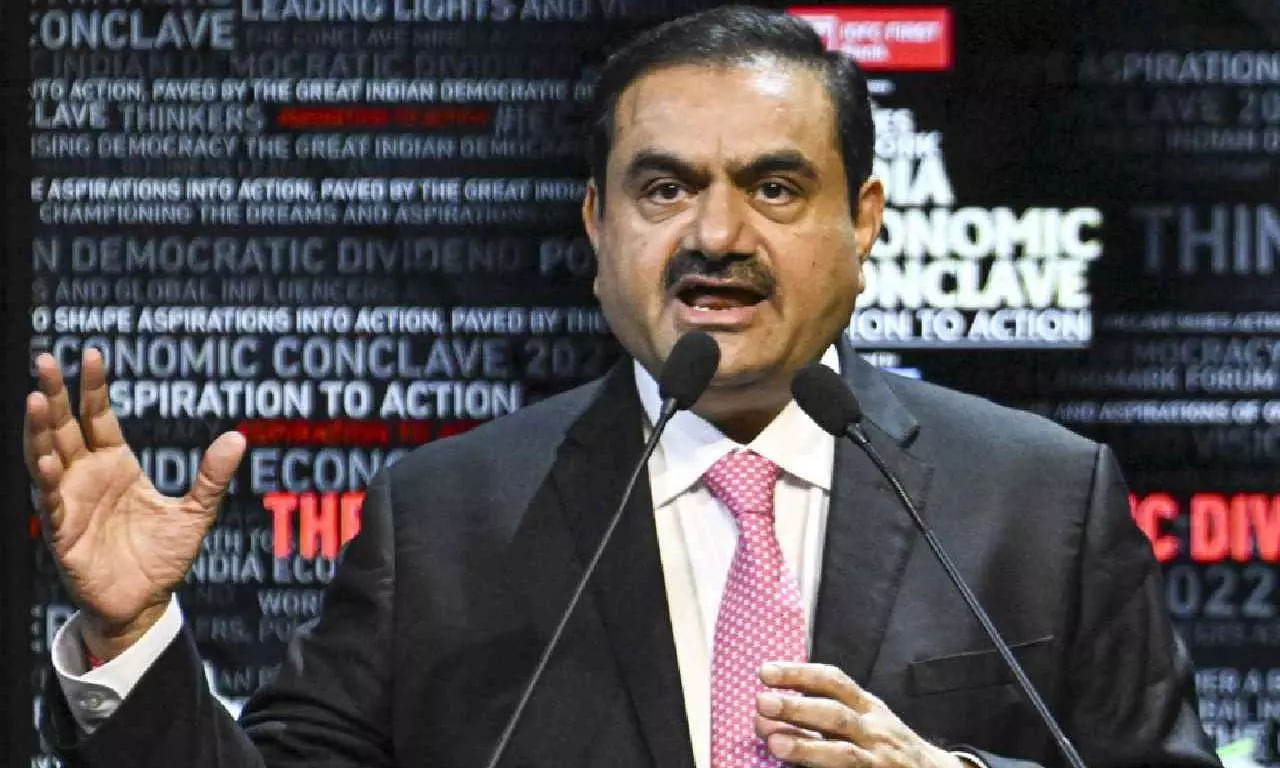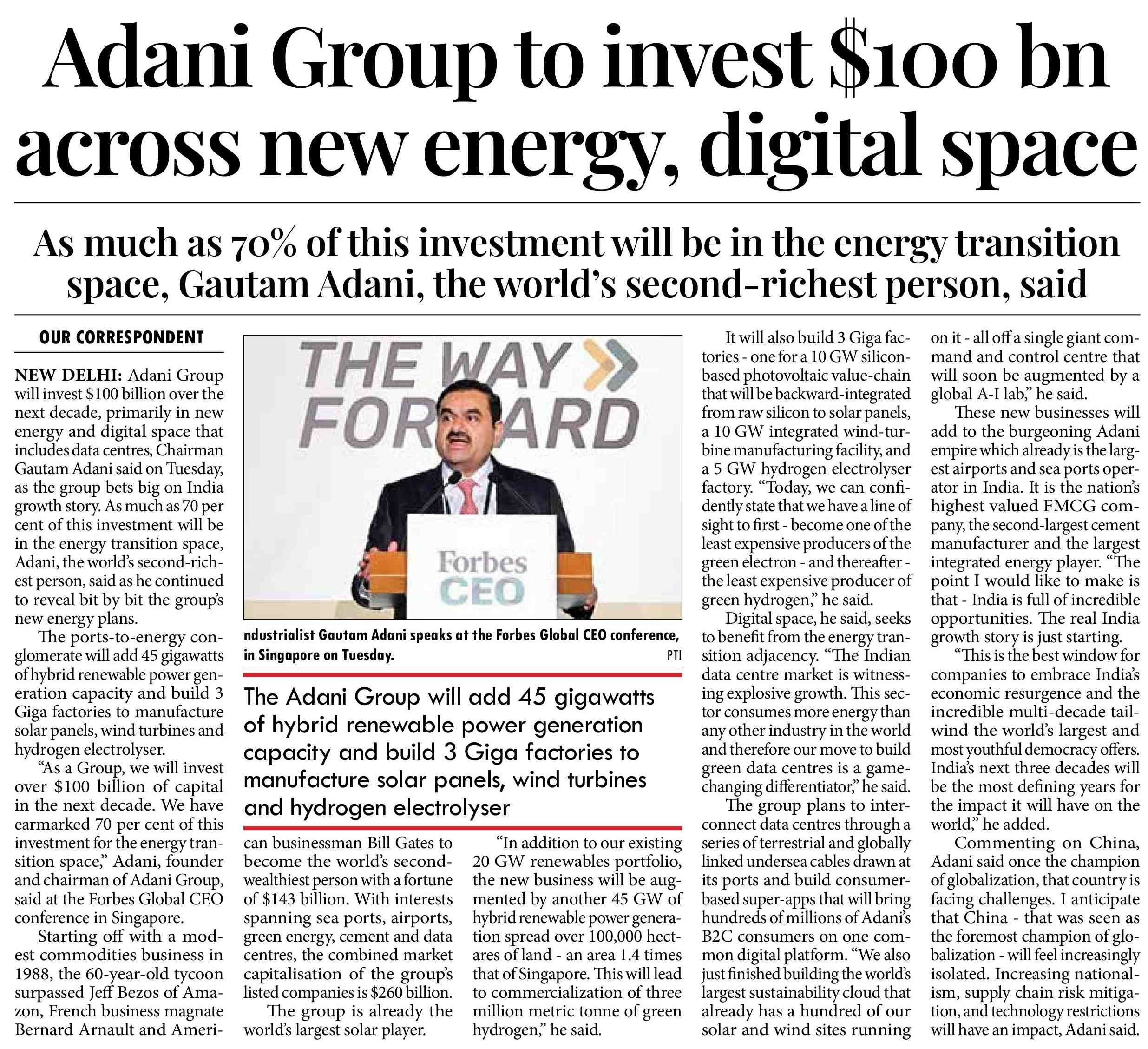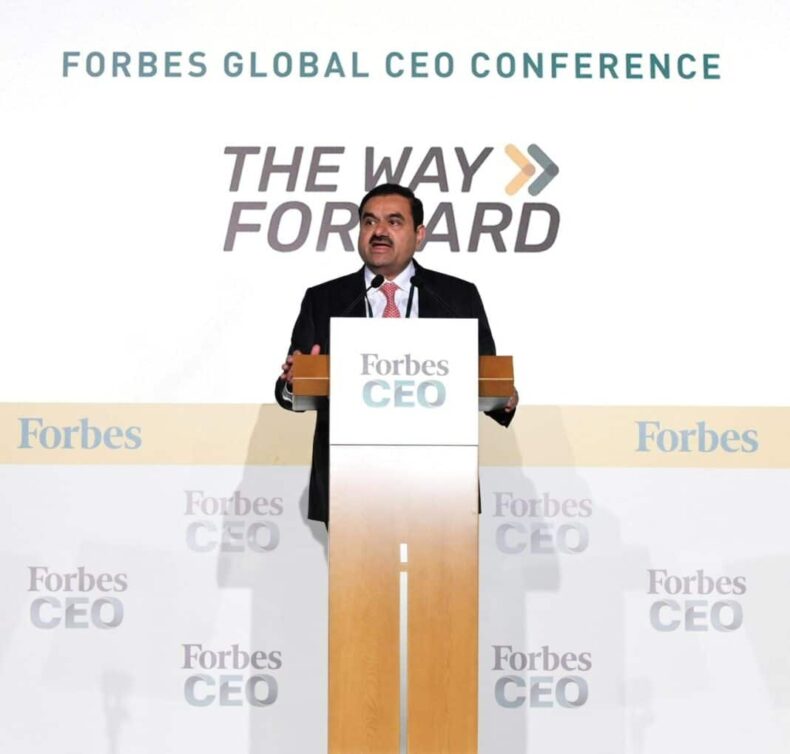Indian billionaire, and CEO of Adani Groups, Gautam Adani said that the second-largest economy in the world, China, will feel more alone as a result of rising nationalism, changes in supply chains, and technological restraints, on Tuesday at Forbes Global CEO Conference in Singapore.

According to Indian billionaire Gautam Adani, China “would feel increasingly isolated” and would struggle to recover from a period of economic stagnation.
China, long a leader in globalisation, is now encountering difficulties, according to Adani.
Adani predicts that China, which was once regarded as the leading proponent of globalisation, will feel more alone. Restrictions on technology, supply chain risk mitigation, and rising nationalism will all have an effect.
Adani, the CEO of the Adani Group, the largest integrated infrastructure company in India, spoke at the 20th annual Forbes Global CEO Conference in Singapore. This month, his wealth momentarily overtook Jeff Bezos’s to claim the title of the second-richest person in the world.

As the ports-to-energy conglomerate accelerates an already aggressive expansion plan, chairman Gautam Adani announced on Tuesday that the Adani Group will invest more than $100 billion over the following ten years, the majority of it in the energy transition industry. Up to 70% of this investment would go toward the energy transition. The ports-to-energy conglomerate will construct 3 Giga plants to produce solar cells, wind turbines, and hydrogen electrolysers, along with an additional 45 Gigawatts of hybrid renewable power generation capacity.
The first of which will be used for a 10 GW silicon-based photovoltaic value chain that integrates solar panels and raw silicon. The second will be a 10 GW integrated wind turbine manufacturing facility, and the third will be a 5 GW hydrogen electrolyser factory. He asserted that we currently manufacture green electrons at the lowest cost and that we will likewise do so for green hydrogen. He claimed that we presently produce green electrons for the least amount of money and that we will do the same for green hydrogen.
Adani started the organisation in 1988 as a commodity trading company and has since expanded into a variety of industries, primarily those related to infrastructure and in accordance with the aims of Prime Minister Narendra Modi’s administration.
The Adani Group’s founder is in charge of businesses that range from ports to power. The aggregate market capitalization of the group’s listed enterprises, which have interests in sea ports, airports, renewable energy, cement, and data centres, is USD 260 billion. With the $100 billion investment, these new enterprises will expand the expanding Adani empire, which already operates the nation’s biggest seaports and airports. After completing the acquisition of Ambuja Cements and ACC Limited, the Adani Group is currently the second-largest cement maker in the country, and the most valued FMCG company. Adani Group is also the biggest integrated energy operator.
Despite his pessimism toward China, Adani is still optimistic about his own nation, claiming that from a political, geostrategic, and market standpoint, India is one of the few relatively bright areas. The Indian data centre business, according to Adani, is expanding quickly. Since this business uses more energy than any other in the world, their decision to develop green data centres represents a significant shift. He claimed that India offers amazing potential and that the tale of genuine India’s progress is only getting started.
India will eradicate poverty and accomplish universal literacy far before 2050. Adani also stated that India will be the country to expand from a 3 trillion-dollar economy to a 30 trillion-dollar economy, a country with a stock market capitalization of 45 trillion dollars, and a country that will be completely confident in its position in the world. By 2030, he projects that India would have the third-biggest economy in the world and the greatest middle class in terms of consumption.













